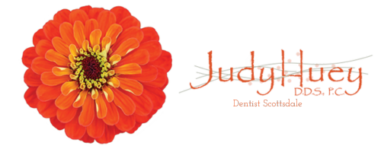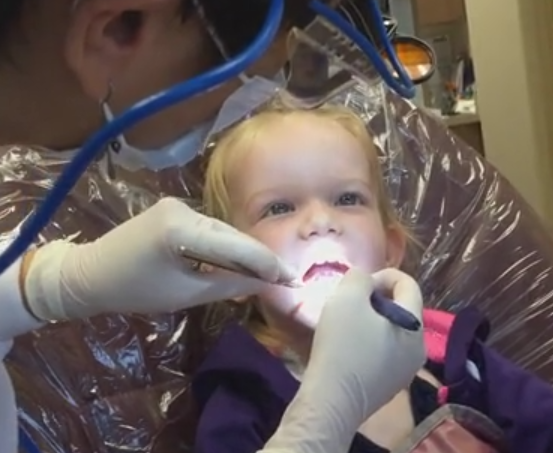Tooth decay in infants and toddlers is often called Baby Bottle Tooth Decay. Many people think that baby teeth are unimportant as they are only temporary. These baby teeth help hold the space available to make sure the adult teeth come in properly. It’s just as important to start infants off with good oral care to protect their teeth for many years to come.
What causes Baby Bottle Tooth Decay?
Baby Bottle Tooth Decay most often occurs in the upper front teeth, but can also affect the other teeth. There are many factors that can cause tooth decay. One very common cause is frequent, prolonged exposure of the baby’s teeth to drinks that contain sugar. Tooth decay can occur when the baby is put to bed with a bottle filled with anything other than water.
Tooth decay is a disease that can begin when cavity-causing bacteria is being passed from parents to the infant. These bacteria are passed through the transfer of saliva. When the parents puts the infant’s feeding spoon in their mouths, or cleans a pacifier in their mouths, the bacteria can be passed to the baby.
If your infant or toddler does not receive an adequate amount of fluoride, they may also have an increased risk for tooth decay. The good news is tooth decay can be preventable.
How to Prevent Baby Bottle Tooth Decay
- Try not to transfer saliva to the baby through common use of feeding spoons or licking pacifiers. After feeding, wipe your child’s gums with clean gauze pads or washcloths
- When your child’s teeth are coming in, brush them gently with a child size toothbrush and water. Consult your child’s dentist or physician if you are considering using toothpaste with fluoride before the age of two
- Brush the teeth with a pea-sized amount of toothpaste between the ages of 2-6
- Supervise their brushing until your child can be counted on to spit and not swallow toothpaste-usually not before age 6 or 7
- Floss between any teeth that are touching each other
- Place only formula, milk or breast milk in the bottle. Avoid filling bottles with liquids such as sugar water, juice or soft drinks. Never allow your baby to fall asleep with anything other than water in their bottle.
- Infants should finish their naptime and bedtime bottles before going to bed
- If your child uses a pacifier, provide a clean one- don’t dip it in sugar, honey or any other sweeteners
- Encourage your child to drink from a cup by their first birthday
- Encourage healthy eating habits
Baby Bottle Tooth Decay Treatment
The time to talk to your dentist about your child’s first dental visit is when the first tooth appears. Treat the first dental visit as you would a well-baby checkup with the child’s physician. Remember: The key to a lifetime of good children’s dental health is starting early. For more information about nutrition and your infant, visit the Academy of Nutrition and Dietetics.
You might also like these articles from Dr. Judy:
The Importance of Baby Teeth
Your Child’s Teeth From Birth to Age 6
Tips for Your Child’s First Dental Visit



